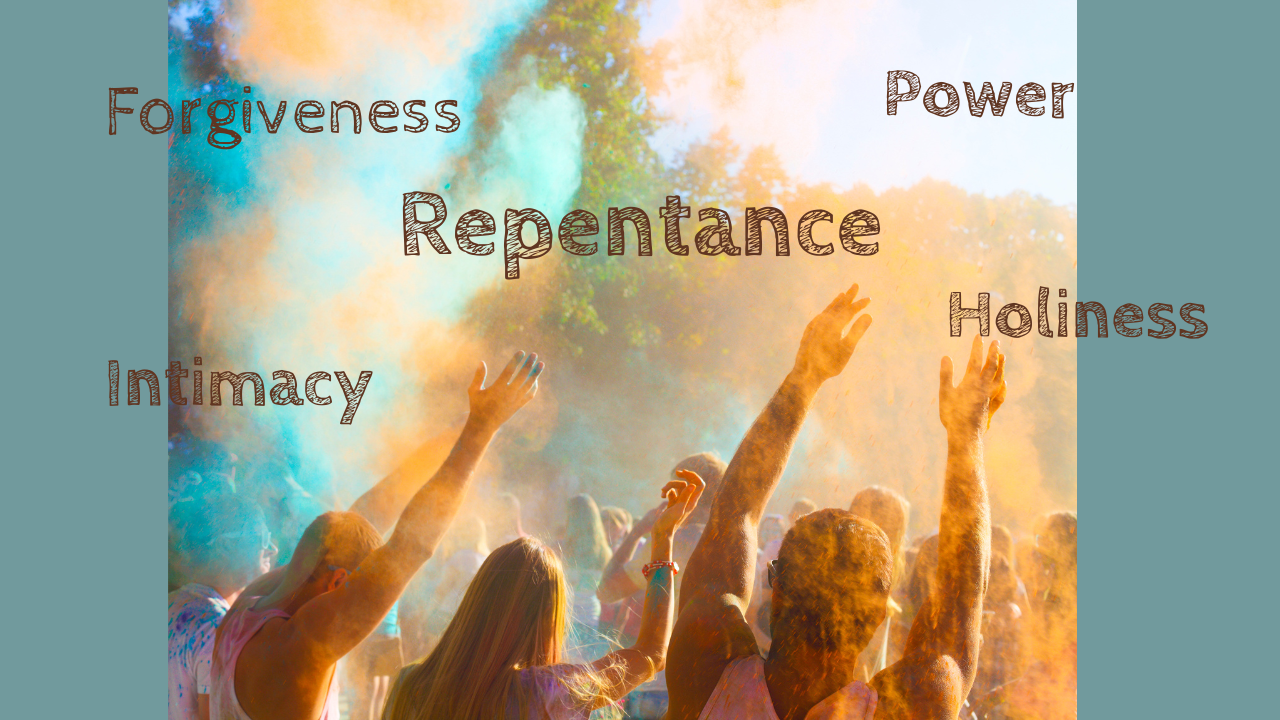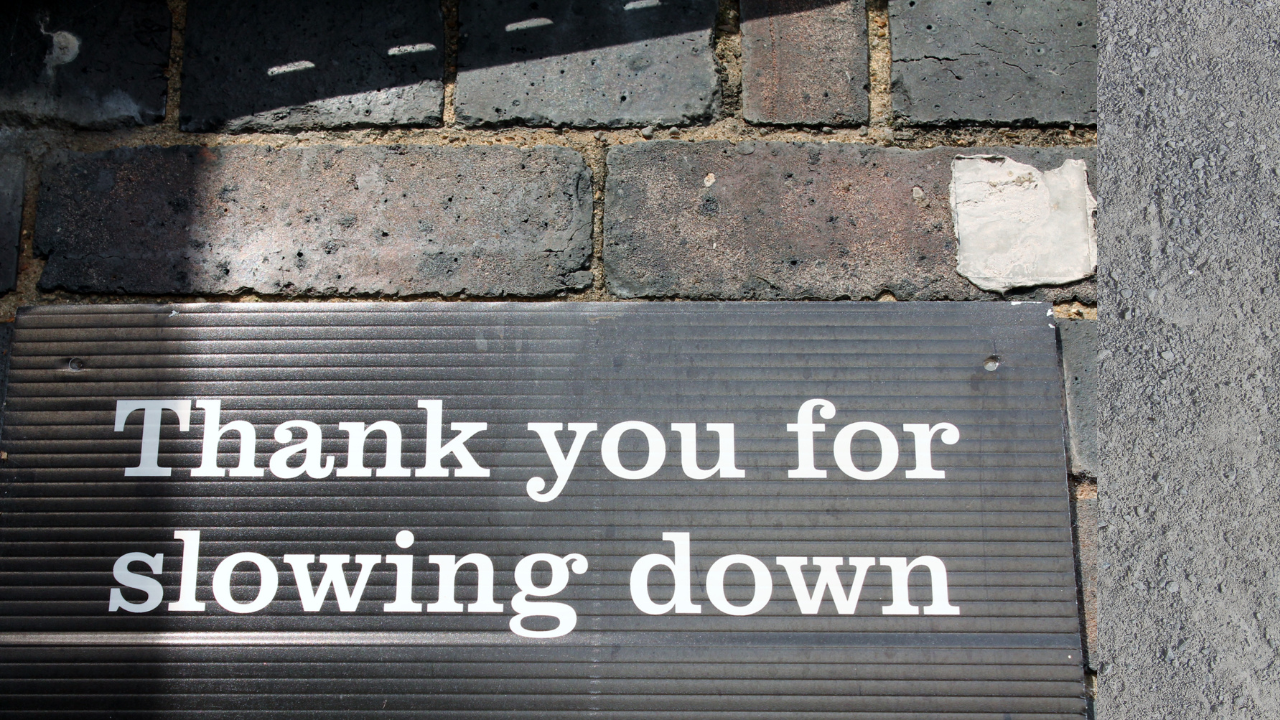Does Your World Feel Wobbly?

What do you do when the world around you – or the world as you know it or like it – starts shaking and feels unstable or threatening? What do you do when there seems to be nowhere to rest or feel safe? What do you do when change is in the air, but you are too tired to rise up and make changes?
We must remind ourselves, and each other, that we are receiving a Kingdom that cannot ever be shaken. (Hebrews 12:28) We are receiving the Kingdom of God; a Kingdom ruled by the Prince of Peace. This Kingdom is beyond tangible. It is not always easy to discern, though it is in our midst, because it is within us! (Luke 17:21) The Kingdom that we are receiving is an awakened awareness of God’s presence and sovereign rule. It’s an awareness of His omnipotence and His lordship over all time and all situations and all outcomes.
When our lives are threatening to fall apart under the seismic pressures and forces around us, we can stop, turn and worship the Lord. In times of trouble, we must turn from ...
Is God Really "For" Us?

Our intentions and motives don’t always align with our actions. Sometimes our intentions are better than our actions. Many people intend to pray more than they actually do, or maybe they intend to study more hours than they actually log, or they intend to be nicer to their spouse than they actually are. In these cases people hope to be judged according to their intentions rather than their actions.
On the other hand, sometimes our intentions are worse than our actions. We may make judgments against others in our heart, but not ever communicate those judgments or do anything about them. We may judge or condemn or try to manipulate people, but hide our true intentions so that they may go undetected. In these situations we hope to only be judged by our actions, not our sinister intentions.
What about God’s intentions – can we clearly discern them? Not always. God’s intentions are to advance His Kingdom so that more and more people will know Him and experience His love, healing and whole...
Are You Thirsty?

How alive are you?
How abundant is your life experience in God?
The New Testament starts with the book of Matthew, but the first Gospel written was most likely the book of Mark. It reads, “The beginning of the Good News about Jesus …” It then starts with the ministry of the John the Baptist – the one who Isaiah prophesied would prepare people to receive Jesus, the Messiah.
John called everyone to repentance – to turn from their sinfulness – their self-referenced, self-promoting, self-protecting and self-justifying lives. John the Baptist proclaimed a new spiritual season in the Messiah that had two powerful stages:
1. Turn from sin and receive fresh forgiveness from God.
Baptism (emersion) in water would be the sign of this spiritually cleansing reality.
2. Look for and be alert to the Promised One – Jesus, the Son of God.
Baptism (emersion) in the Holy Spirit will be the reality of this new life.
As we consider Jesus, the eternal God-man, we need to consider the inauguration...
Are You Baffled By Suffering?

Do you ever feel like you can’t catch a break – like people and circumstances are constantly raising their hands against you? This is part of what life is like sometimes. Life on earth is difficult. Sometimes, even for long periods of time, life can feel oppressive – and bring suffering. Understanding this reality can be helpful – everyone suffers, and everyone needs to learn to persevere.
Unfortunately, many people of faith are baffled when they hit difficult patches. They subtly or blatantly believe that their lives should be easier because they have faith in God. This is wrong theologically and unhelpful in practice.
Jesus’ life was difficult, and it grew more difficult as He continued in His faithful devotion to the Father. The apostle Paul’s life was also difficult. Yet, rather than being perplexed by his difficulties or feeling sorry for himself, Paul invited his spiritual son and apprentice to “join him in suffering like a good soldier in Christ Jesus.” (2 Timothy 2:3)
Perse...
Are You Dialing-In?

Sights, sounds, smells, tastes, feelings – they are bombarding and impacting us all day long. We have to filter out so much of what is coming our way, just to survive. When it’s time to listen to people, however, we need to shift gears. We need to switch our emphasis from screening-out to dialing-in.
Active listening is one of the most important skills you will ever develop. It dials-in your attention toward the person speaking. Good listening is a life-long pursuit, and we need to relentlessly give ourselves to it.
Jesus was the best listener that has walked the planet. You can tell by the way asked and answered questions. His questions often were laser-like, honing in on the heart of the matter. Yet, sometimes His answers seemed almost unrelated to the questions that were asked of Him.
At first glance, He might have appeared to be missing the point, or not really listening, or disvaluing the question. But, soon it became apparent that His answers moved people to a deeper consider...
No More Fear Paralysis

When was the last time you failed? Was it huge or a small mistake, a breakdown or a collapse – or have you intentionally suppressed memories of your failure?
Most of us hate failure. Failing makes us feel ashamed. It threatens our identity – as if our identity could be built on consistent, flawless performance.
We need to remember, however, that failure is a significant and important part of life. The only way a child will ever learn to walk is by failing thousands of times. People of great accomplishment have a long string of failures to which they can very easily point.
Winston Churchill, widely regarded as one of world’s great wartime heroes, defined success as “going from failure to failure with no loss of enthusiasm.”
The best way to deal with a fear of failure is to press ahead, try some new things and fail a few times. You will find that the fear of shame associated with the fear of failure is ten times worse than the actual failure. The paralyzing questions related to, “W...
How Well Are You Listening?

Most arguments seem to spring from a sense of not being heard or understood. When we are not understood we tend to press our point or perspective harder. Unfortunately, our extra efforts and energy can be threatening and put others on the defensive. Change is needed.
At a number of junctures Jesus is recorded as saying, “Whoever has ears to hear, let him hear.” These words were always clues indicating that the listener needed to employ a spiritual, kingdom understanding in order to grasp the point Jesus was making. He was encouraging His hearers to slow down, ponder and ask God’s help to understand the things of the Spirit.
In Revelation, we see Jesus using the same expression for people to understand His messages to each of the seven churches. He said, “Whoever has ears, let them hear what the Spirit says to the churches.” We, too, need to take time to listen and discern what God is saying. We need the Spirit’s help to understand what the Spirit is saying.
Isn’t the same thing tr...
How to Deal With the Three Ugly Stepsisters: Worry, Doubt, Fear

Sometimes people believe many of the “right” things about God and have fairly solid theology, yet their lives seem none the better for it. How can this be? Often we have rebellious rumblings under the surface of our consciousness. They can go undetected unless we take time to allow them to surface and intentionally address them.
Worry is one such rumbling that can rob our spiritual lives. It is a deceptive thought/feeling. It can make us feel like we are being responsible when we are not. Worry never helps a situation. Jesus told His disciples not to worry about their lives, clothes or food. He asked, “Who by worrying can add one hour to their life?” (Luke 12:24) Paul said not to worry or be anxious about anything, but instead to
bring our concerns to God. (Philippians 4:6) Peter exhorts us to cast all our anxiety upon the Lord who cares for us. (1 Peter 5:7)
Doubt can also creep into our relationship with God. We may start to wonder if our faith in God is real. We might wonde...
Are You Gracing and Facing Your Way?

When you have come up short, or have been "found out" about something, how do you respond? Are you inclined to feel horrible and hopeless, or might you look to deflect attention by finding fault with someone else? Cain, the third person alive on the planet, was similarly challenged, and he did not fare well.
Cain brought the first fruits of his crops to God as an expression of worship. His brother, Abel, brought fat portions from some of the firstborn of his flock. God received Abel and his offering, but He did not favorably receive Cain and his offering, and Cain became angry. God said to Cain, “Why are you angry? … If you do what is right, will you not be accepted? But if you do not do what is right, sin is crouching at your door; it desires to have you, but you must master it.” (Genesis 4:6-7) What a powerful message! Unfortunately, Cain did not heed the word of the Lord, and it resulted in a death and a cursed existence.
We don’t know for sure why Cain’s offering wasn’t...
Do You Feel Lonely?

Loneliness is one of the worst experiences people face. God knows this! Referring to Adam, before Eve was created, God says, “It is not good for the man to be alone.” (Genesis 2:18) Everyone experiences loneliness, and it is difficult for us all.
Consider this obscure verse that says, “The Lord Himself will give you a sign: The virgin will conceive and give birth to a son and will call him Immanuel.” (Isaiah 7:14) This prophetic word was spoken to the king of Judah to convince him that the two armies coming against him in battle would not succeed. It also has a deeper and more profound meaning for all humanity. Matthew quoted this verse (Matthew 1:23) and declared its fulfillment in the birth of Jesus, born of the virgin Mary, but conceived by the Holy Spirit.
Theologically and practically, Jesus is best understood as fully God and fully human. He is the fulfillment of the name Immanuel, which means, “God with us.” This separates faith in Christ from all religions in the ...

